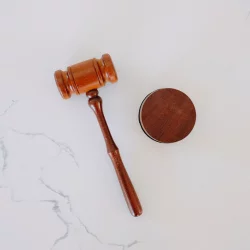6 Rights of a Loan Defaulter
Money is important in life and is a necessity to pay your house rent, children’s education, grocery, car EMIs, utility bills, and so on. Besides your basic needs, you also need money for living a better life. You may want to invest in a new property with more space and luxury amenities or buy a brand new car. You are in a job and draw a decent salary every month. However, that money is not sufficient to meet all your family’s needs. You run out of cash many times, and you need not feel bad about it. Everyone does fall short of money at some point of time or the other. When you have budget constraints, the only option available is taking a loan from banks, financial institutions, or any other credible lending agencies near you. If you manage to get a loan from one of your friends or a family member, then consider yourself lucky. However, not all are fortunate. They take loans and often fail to make timely payments. If you are one of them, fret not. Even if you default payment, you have certain rights to protect your financial interests. Here are six rights of a loan defaulter discussed in this article:
- Banks to Give You Enough Time to Repay
When you default on any loan - be it personal or otherwise - no bank can deny you the rights to repay. You have the right to ample notice so that you can manage funds and clear all dues. Taking a loan and not able to pay on time does not make you a criminal. Every bank has a certain process to follow and must give you the time required to repay the borrowed amount. However, make sure that you disburse all payments to avoid reselling or repossessing of your assets to realize the loan amount. You need to pay on time to avoid complications and legal suits. According to an article published on https://www.huffingtonpost.com, a bank makes an agreement with you, and they have the right to repossess your assets if you fail to clear the arrears within the stipulated time allowed to you.
Usually, financial institutions and banks initiate any type of legal processes under certain acts. If you fail to make payments for the last three months, your bank will send you a legal notice to clear the outstanding amount within the next two months. And you need to do so if you do not want any legal hassles in the future.
- Right to Communication
When you default on a loan, you have the right to communicate with the bank. It is the basic right of any defaulter. The lender should behave in a civilized way in such situations. When you are failing to make payments, the bank should understand your financial problems. This rule holds if the cause of defaulting is genuine when you are unable to clear the arrears due to some valid reasons. You have the right to talk to the bank officials to increase the tenure of your loan that will result in the reduction of the installments you pay monthly. You can also research on the internet and look for lenders such as https://www.libertylending.com/ who provide loans on flexible terms. Besides, if you take a loan from a bank, ask whether they can restructure the amount you borrowed.
- Ensuring Fair Value
The bank or any lender will start auctioning your assets such as your house or car to recover the outstanding amount. It will occur only when you fail to pay what you have borrowed during the notice allowed to you. Before giving you the notice, banks have another important thing to do. The lender will issue an additional notice mentioning the fair value of your secured property as evaluated by the bank’s valuers. It will include information including auction date and time and reserve price. You have the right to show your disapproval if you feel your assets have been undervalued. You need to justify your objection raised by communicating a better offer so that the bank can come to a decision quickly. It means that you can search for potential customers who show interest in buying your property. You can introduce these people to the lender if you feel that your house or car can fetch a better price than what was quoted by your bank.
- Right to Realize the Balance Proceeds
Make sure you do not write off your property or asset in your mind once it’s repossessed. Monitor the auction process. It is not a difficult thing to do because most lenders today conduct e-auctions. Your bank or lender is bound to refund any balance amount after recovering their loan. It is possible when real estate prices escalate beyond your borrowed sum. The balance, if any, after the proceeds belongs to you and not the bank.
- Right to Be Treated Well
You have only taken a loan and failed to make payments on time. However, you agree to the notice period and willing to repay the arrears. Banks are regulated organizations, and they should behave in a civilized manner without resorting to bullying or threatening such as other social moneylenders do. The bank must abide by the rules and regulations and allow you time to repay. The financial institutions have no right whatsoever to humiliate you publicly or harass you just because you have defaulted on a loan.
- Make Sure You Are Heard
During the specified notice period during which you agree to repay the loan, you have full rights to consult any advocate or authorized official in your country. You can consult these professionals to raise legal objections concerning the notice period.
Conclusion
Taking a loan is a happy experience because you get the money to meet certain needs. However, the challenge begins when you fail to repay due to a shortage of funds. Therefore, always make sure that you borrow only the amount that you can afford to repay. In case, you default, know about your rights as a defaulter.
More to Read:
Previous Posts:



